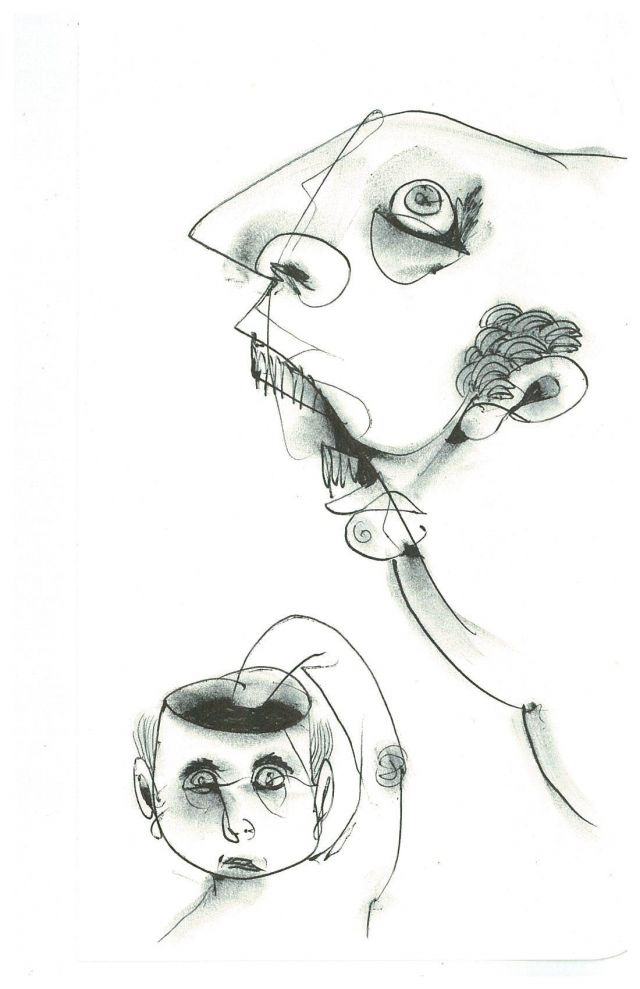Westworld
Maddd Science

“Puzzle box” TV shows are mindless summer blockbusters in TV form: They both eschew characters and realistic plots for guilty-pleasure spectacle. Insane conspiracy theories are disaster porn for the brain, since we’re hardwired to see patterns everywhere, and puzzle box TV can get more attention in a crowded TV landscape by setting up mysteries to draw in an audience with.
Westworld season 1 is the pinnacle of the form, but Mr Robot is up there, too. LOST is the ur-example. Walking Dead is the worst offender, and Game of Thrones is shambling towards the Walking Dead.
I enjoy a good puzzle, so Westworld was a guilty pleasure for the first season, but it got a lot less fun in the second. They know where they're going, but spend too much time getting there. In the future, I'll probably just drop in on the show's season premieres and finales.
'Westworld' turns TV viewing into a game, but that's not enough
Devindra Hardawar, Engadget
Given just how much Westworld owes to gaming, it wasn't a huge surprise to see Nolan and Joy headlining a talk at E3 this year. Nolan calls himself a "committed gamer," while Joy is more of a novice. As they were prepping Westworld, they dove deep into Red Dead Redemption. You can see traces of it in the show's gritty aesthetic, as well as in the "loops" hosts are programmed to follow.
Here's the most eloquent I've ever seen someone wax about the disco cover of Star Wars music. It's also the first time someone has pointed out to me that "Space Oddity" is a play on "Space Odyssey."
Strange Stars: Jason Heller on Bowie and the Decade That Sci-Fi Exploded
Jason Heller, Westword
Star Wars is the first movie that springs to mind when thinking about ’70s sci-fi, and Bowie is the first musician. Both are touchstones of the decade’s pop culture. As I grew older and became more immersed in sci-fi of all media, though, I began to realize how isolated sci-fi music was. Literature and cinema were taken as serious sci-fi and discussed openly as such; sci-fi music, on the other hand, was still seen as sort of a novelty. After I grew to adulthood and got into music journalism, that out-of-hand dismissal began to frustrate me. The Hugo Awards, sci-fi’s highest accolade, honored books, films, and television every year; only on the rarest of occasions did they acknowledge the contribution to the sci-fi canon made by music. When the openly sci-fi songs of artists like Bowie did pop up in the sci-fi discourse, the conversation swiftly pivoted to something else — as if a thorough analysis of sci-fi’s influence on music was either tangential or trivial.
The Scammers In “Ocean’s 8” And “Solo” Can’t Keep Up With Real Life
Alison Willmore, Buzzfeed News
Caper movies — the lighter ones, at least — tend to implicitly be in appreciation of and in service to movie stardom. The Sting is a tribute to Paul Newman and Robert Redford's nuclear-level combined appeal; Ocean’s Twelve, the second and most indulgent installment of the trilogy, basically served as a way for its celeb-heavy ensemble to jaunt around Italy in some exceptionally picturesque ways. In 2009's Duplicity, Julia Roberts and Clive Owen play two rival spies gone private-sector who dream up a scheme to get rich after spending three days rolling around an (of course) five-star hotel room, and you root for them because they look fabulous, like they deserve to have the money because they've shown themselves to be terrific at spending it.
Here's something on one of Netflix's best original films:
Netflix’s totally delightful Set It Up proves just how durable the romcom formula is
Alissa Wilkinson, Vox
That’s in keeping with an important thing about romcoms: They’re romantic, sure, but they’re mostly comedies. Not the joke-a-minute type (though Set It Up has lots of funny jokes), but the more classical type stemming from Shakespeare’s and Austen’s days: The type of story where things start out okay, then get worse for a while, and then, in the end, leave things in a better state than they were when the curtain first rose.
How to Write a Novel Set More Than 125 Years in the Future
Annalee Newitz, Slate
Again, I didn’t think of what I was doing as prediction. I’ve participated in foresight exercises with groups like the Institute for the Future, and for them the hallmark of a good “forecast” is that it encompasses a range of possible outcomes. I was hacking just one path through a thicket of possible tomorrows.
The New Jersey podcast empire where Nicolas Cage is King
Christopher Maag, NorthJersey.com
If displaying earnest affection for one of America’s most widely mocked movie stars strikes you as a cul-de-sac to obscurity, you are wrong. Starting with a single podcast in 2015, CageClub.me has grown into a network of 18 shows, enough to publish a new episode nearly every day on its own site as well as on iTunes, Google Play and Stitcher.
Evil Children And Overachieving Skeletons: Welcome To The World Of Paperback Horror
Grady Hendrix, NPR
Publishing was a different business then, and a midlist hit could move a couple hundred thousand copies, so contracts paid more, and authors wrote faster, constantly chasing the market. There was little downside in giving any idea a whirl and, as a result, hundreds of thousands of people read books like Slime, about an invasion of killer jellyfish; Night of the Crabs, about an invasion of really angry giant crabs; and, finally, The Folly, about some of the most bloodthirsty rabbits ever to hop, jump or burrow their way across the page.
Next Week on Maddd Science: Steve Ditko
My Patreon remains in: existence